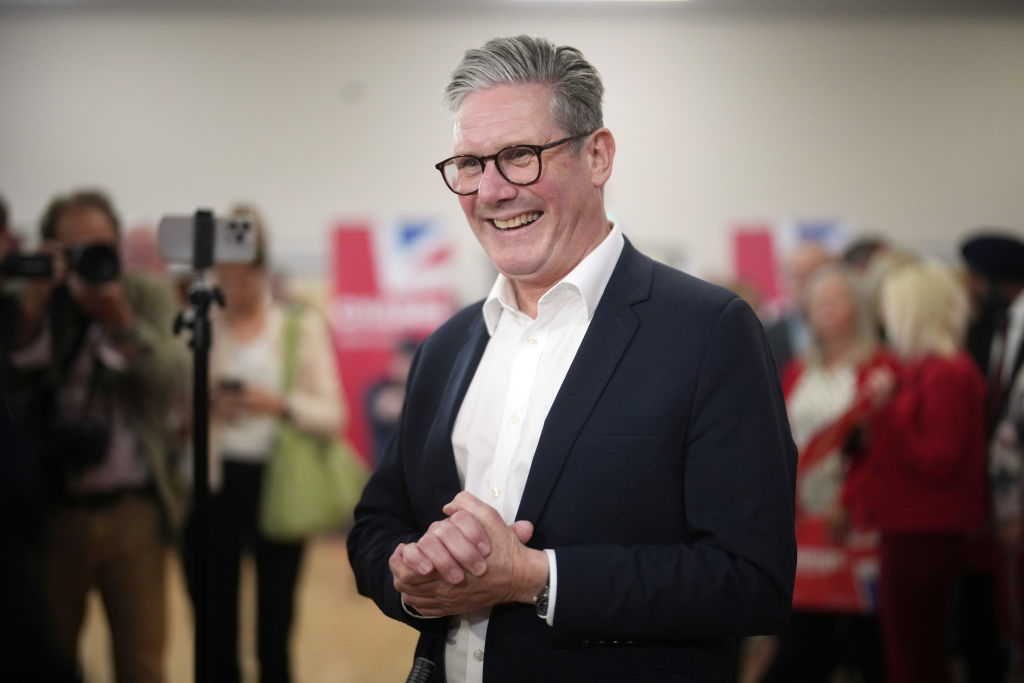- Monday, April 21, 2025
Following the debacle of the 2019 election, he stepped up as party leader and has sought to distance himself from the past party line to stress that Labour under his leadership now focuses on key public concerns.

By: Shubham Ghosh
SIR KEIR STARMER, the human rights barrister turned Labour Party Leader, has made it a manifesto pledge to pursue a “new strategic partnership” with India, including a free-trade agreement, if handed a mandate to form a Labour-led government in Thursday’s (4) general election.
Sir Keir, who was knighted by the late Queen Elizabeth II for his services to law and criminal justice, spent much of his career in the legal profession before stepping into the world of politics, first elected as Labour’s member of Parliament from London in 2015.
The 61-year-old father of two teenage kids, who he and his National Health Service (NHS) employee wife Victoria have chosen to keep out of the political spotlight, has been credited with reversing the party’s fortunes from one of its worst poll performances in the 2019 general election to the edge of government.
Read: EXCLUSIVE: Starmer says Labour needs wealth creators as party courts Asian businesses
The other turnaround Starmer worked on was to try and re-build Labour’s connect with the Indian diaspora, alienated under former leader Jeremy Corbyn over a perceived anti-India stance on Kashmir.
“I have a clear message for you all today: this is a changed Labour Party,” declared Starmer at the India Global Forum (IGF) last year, setting the tone for the party’s India-UK outlook.
Read: UK election: New poll predicts Labour bettering 1997 tally
“What my Labour government will seek with India is a relationship based on our shared values of democracy and aspiration. That will seek a free trade agreement (FTA), we share that ambition, but also a new strategic partnership for global security, climate security, economic security,” he said.
This approach has been entrenched in the party’s 2024 election manifesto, which commits to seeking a “new strategic partnership with India, including a free trade agreement, as well as deepening cooperation in areas like security, education, technology and climate change”.
During a visit to the Shree Swaminarayan Temple in Kingsbury, north London, on the campaign trail last week, he sought to reassure British Hindus that there is “absolutely no place for Hinduphobia in Britain”.
It is a message he has been reiterating over the past few years during celebrations of Diwali and Holi, preparing Labour to form a government after 14 years in Opposition.
Born in London to a toolmaker father and an NHS nurse mother, Starmer grew up in the town of Oxted in Surrey. He has spoken emotionally about his mother, Josephine, suffering from the debilitating condition of Still’s disease which she succumbed to a few weeks before he first became an MP in 2015.
He believes he has inherited the grit and determination of his mother and the strong work ethic of his father, Rodney, whose manual labour drives much of Starmer’s vision to ensure respect for those who work hard. “I carry the disrespect my dad felt because he worked in a factory, that really impacted him, that made him recoil from company and become quite isolated,” he told The Sunday Times in a recent interview.
“It is among the reasons that I will never treat people with disrespect,” he said.
In the televised election debates, Starmer has played second fiddle to the natural debating charm of Rishi Sunak and is often branded as being quite dull. But just like Sunak, he also has a University of Oxford background where he studied law and rose up the ranks to be appointed the Director of Public Prosecutions (DPP) under a Labour-led government. He has often drawn upon this experience as the chief prosecutor of the country in debates in the House of Commons, to claim that he has the practical experience of dealing with criminal gangs.
As a new MP in 2016, the staunch anti-Brexiteer assumed the key role of shadow Brexit secretary under then leader Jeremy Corbyn and supported the latter to fight for what he said was the “future of the Labour Party”.
Following the debacle of the 2019 general election, he stepped up as party leader and has sought to distance himself from the past party line to stress that Labour under his leadership now has a fully costed manifesto that focuses on the key public concerns of housebuilding, growing the economy and fixing the NHS.
On foreign policy, there is likely to be a large degree of continuity as Labour chimes with the Tory stance on the UK’s support for Ukraine in its ongoing conflict with Russia. Some changes are expected in the approach to the Israel-Gaza crisis, as Labour plans to stop arms sales to Israel and wants to progress towards recognising the Palestinian state.
The overall sense of a Starmerite vision for the UK is of a leader who is itching to fix things that he feels have been broken because of the “chaos” of several leadership changes within a divided Conservative Party in the past few years. “If you want change, you have to vote for it” – has been the central theme and message of his general election campaign.
Despite all opinion polls forecasting a so-called “supermajority” on the scale of 1997 when Blair stomped to victory over John Major, Starmer’s election strategy has been characterised by caution.
The Labour leader has done everything in his power to hold on to his party’s clear lead in the run-up to the election.
“If we get the opportunity, we will govern as we have changed Labour, which is to take the country from the pretty poor place that it’s in at the moment and to seriously change it, so that by the end of the first term of a Labour government people will be able to say, ‘do you know what, I am better off’,” he declared.
(With PTI inputs)